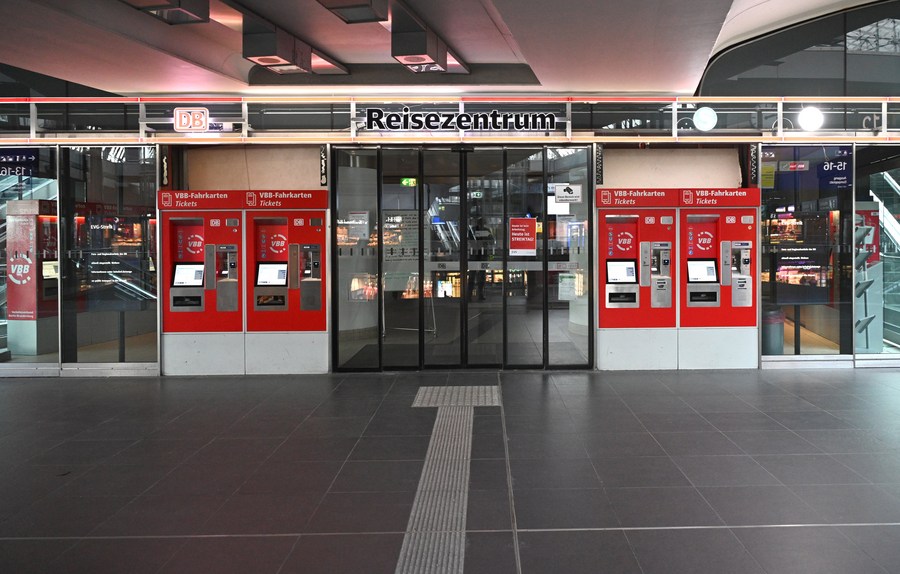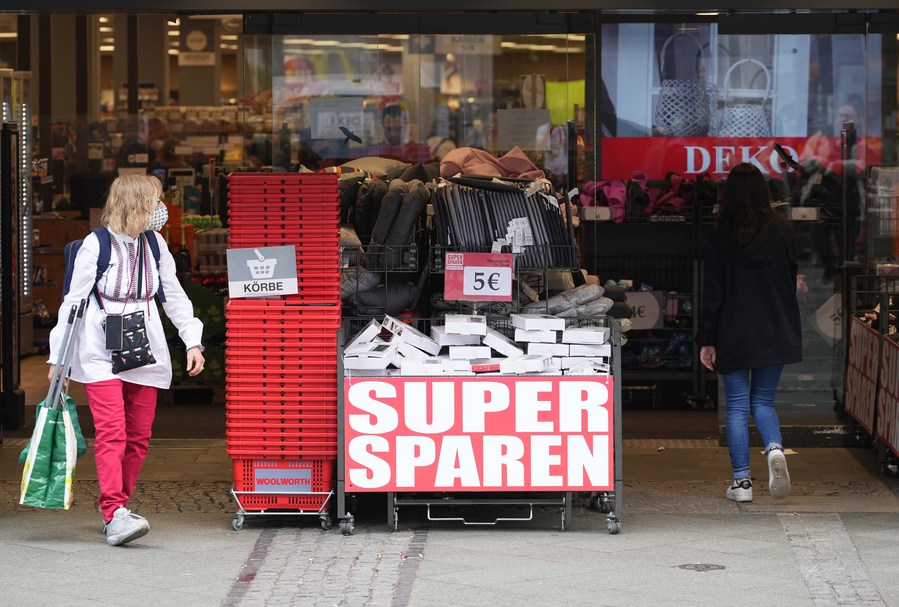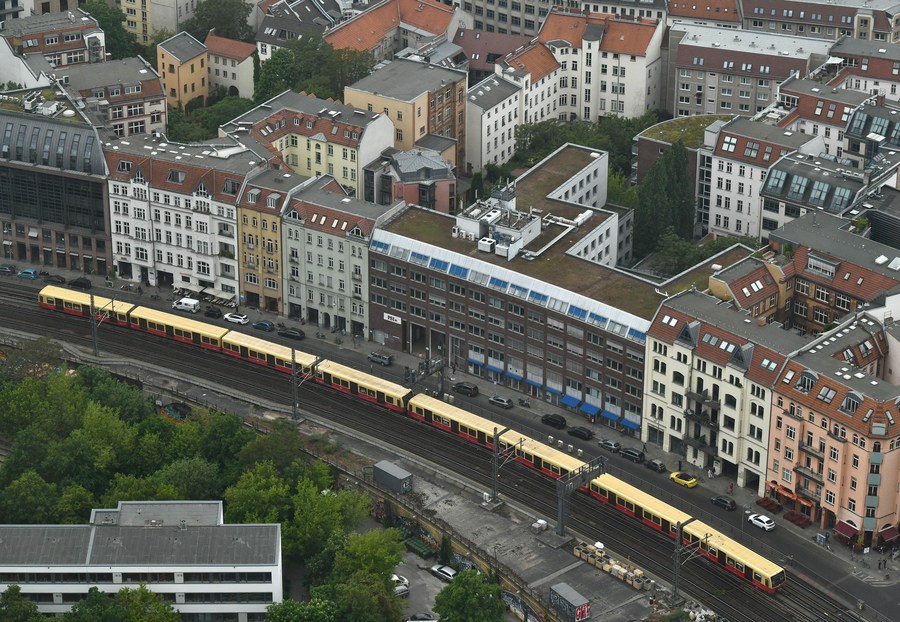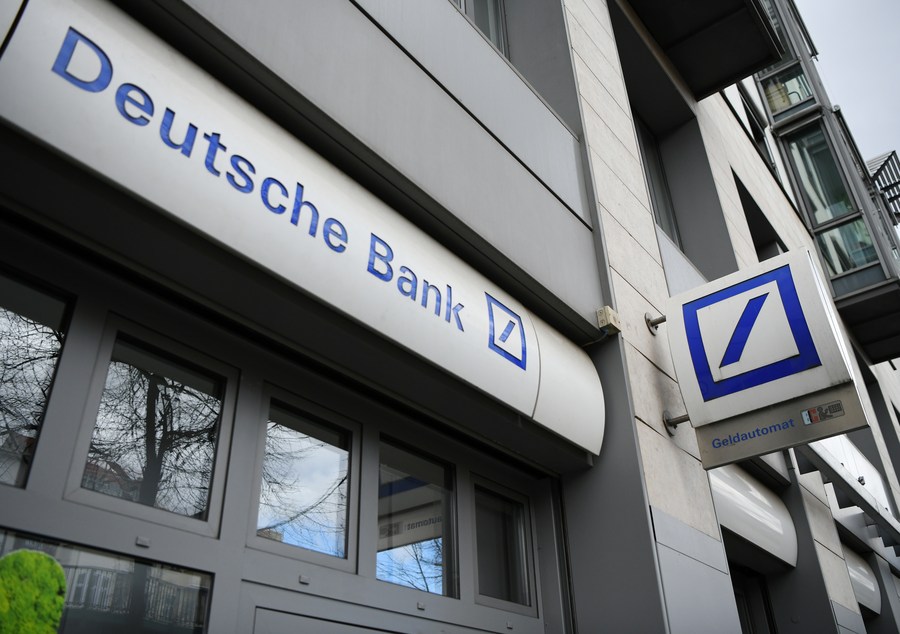German economy stagnates in Q2, teetering on edge of recession: Destatis

A travel center of Berlin Central Train Station is seen shut down in Berlin, Germany, on March 27, 2023. (Photo by Stefan Zeitz/Xinhua)
Private consumption in Germany stopped falling after the short recession in the winter months. Government final consumption expenditure also "recovered after some notable declines" and increased slightly by 0.1 percent.
BERLIN, Aug. 25 (Xinhua) -- Germany's economy stagnated in the second quarter (Q2) of 2023, presenting 0 percent growth compared with the previous quarter, according to confirmed results published by the Federal Statistical Office (Destatis) on Friday.
Private consumption stopped falling after the short recession in the winter months. Government final consumption expenditure also "recovered after some notable declines" and increased slightly by 0.1 percent.
"Dynamics mainly come from consumption, private as well as public," Axel Lindner, deputy head of the Department of Macroeconomics at the Halle Institute for Economic Research (IWH), told Xinhua on Friday.

Customers are seen at a shop in Berlin, capital of Germany, on May 11, 2022. (Photo by Stefan Zeitz/Xinhua)
However, persistently high prices continued to have a "noticeable effect in a year-on-year comparison," Destatis noted. In private consumption, this was particularly reflected by lower expenditure on food and beverages, and restaurant and accommodation services.
German consumers have long felt the difficult economic situation. According to the German Retail Association (HDE), consumer sentiment in August remained at a low level. "Consumption will not be a major support for the economy in the foreseeable future," the HDE warned recently.
Europe's largest economy is also suffering from weak international demand. Imports of goods and services stagnated in Q2, while exports were 1.1 percent lower compared to the previous quarter, according to official figures.
"While investment activity has expanded moderately, the decrease in exports follows a worrying downward trend," Lindner said, stressing that exports were now also lower than one year ago.

A train runs in downtown Berlin, Germany, May 23, 2023. (Xinhua/Ren Pengfei)
Sentiment among German managers "darkened further," the ifo Institute for Economic Research said on Friday. The corresponding Business Climate Index declined from 87.4 points in July to 85.7 points in August. It was the fourth decline in a row.
Assessments of the current business situation fell to the lowest level since August 2020. In addition, companies were taking a more pessimistic view of the coming months. "The German economy is not out of the woods yet," the institute said.
The difficult economic environment is also reflected in Germany's state finances. According to provisional figures published by Destatis on Friday, the government deficit in the first half (H1) 2023 shot up to 42.1 billion euros (45.4 billion U.S. dollars), 37.6 billion euros higher than in H1 last year.
The sharp rise in government spending was primarily driven by extensive economic relief packages, including a gas and heating price brake, as a "reaction to high inflation and energy prices," Destatis said.

This photo taken on March 25, 2023 shows a Deutsche Bank branch in Beriln, Germany. (Xinhua/Ren Pengfei)
Leading economic institutes have lowered their forecasts in recent months and now expect the German economy to shrink between 0.3 percent and 0.4 percent in 2023. The next government forecast is scheduled for October, but the main indicators "still do not point to a sustained economic recovery in Germany in the coming months," the Ministry for Economic Affairs and Climate Action (BMWK) said last week in its monthly economic report. (1 euro = 1.08 U.S. dollar)
Photos
Related Stories
Copyright © 2023 People's Daily Online. All Rights Reserved.









